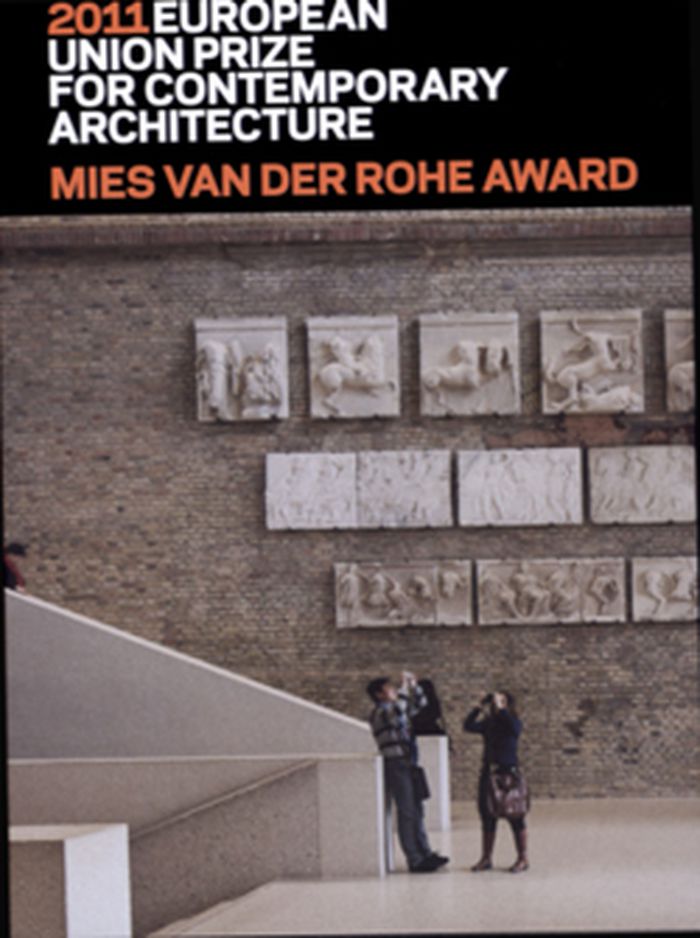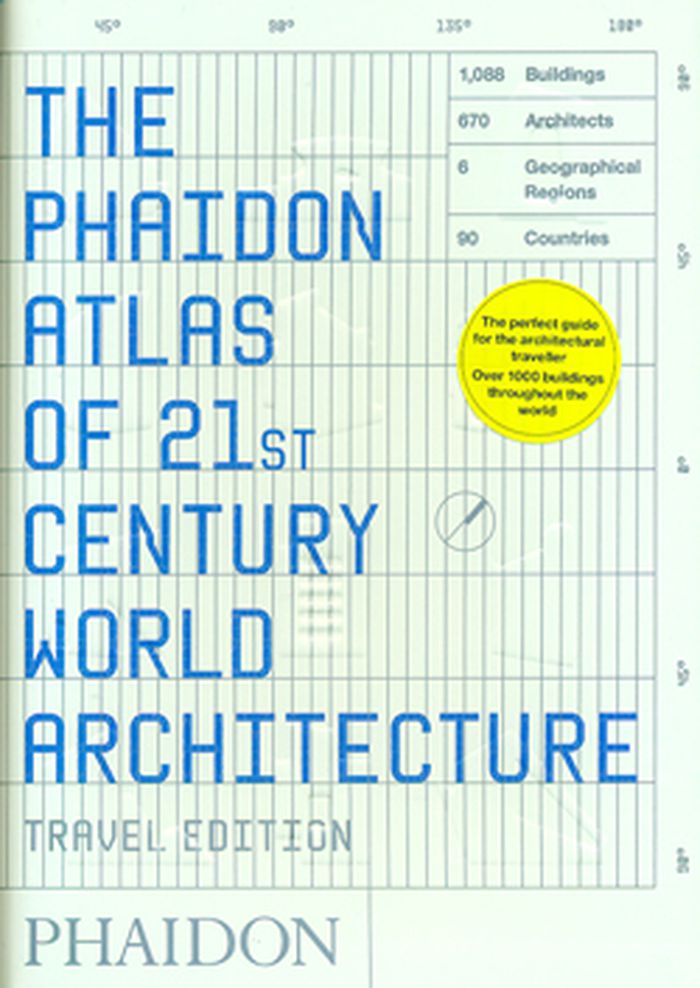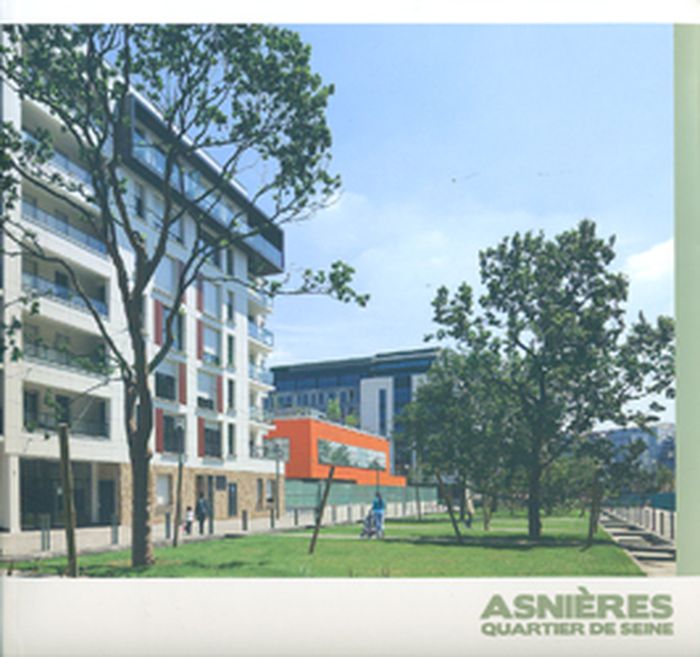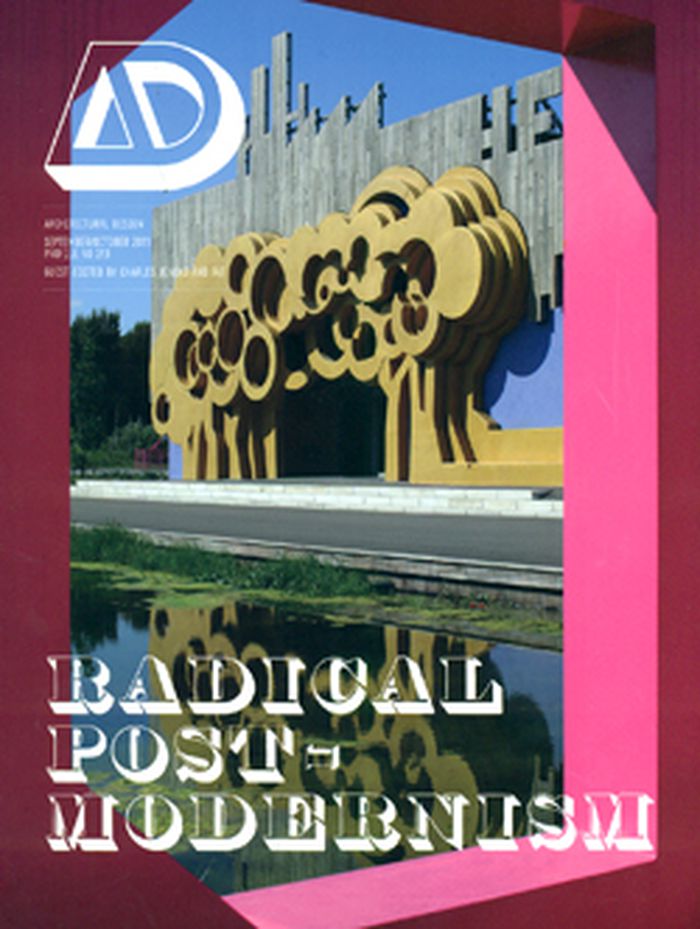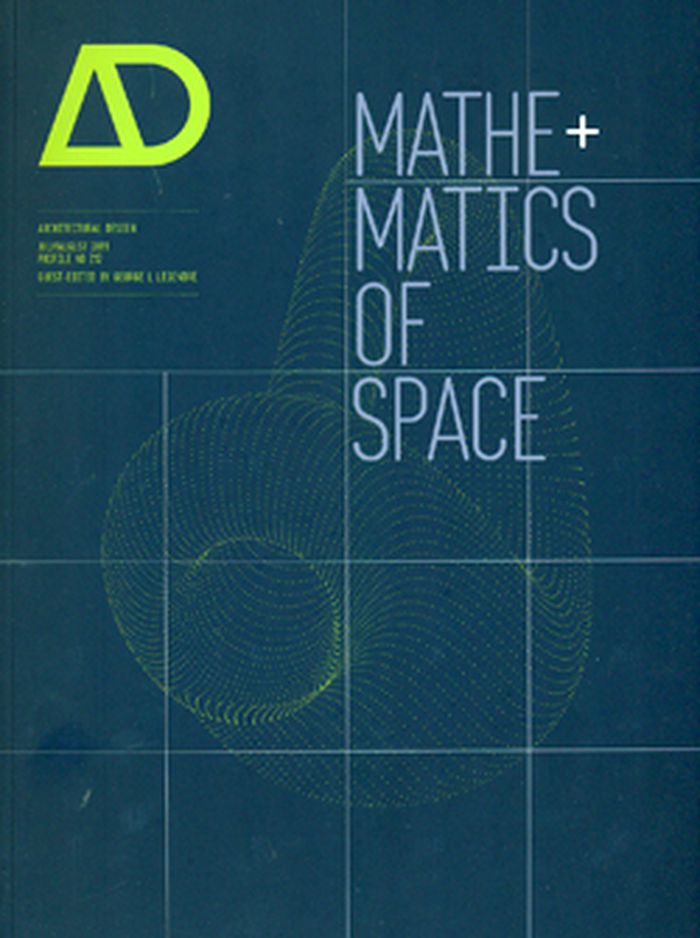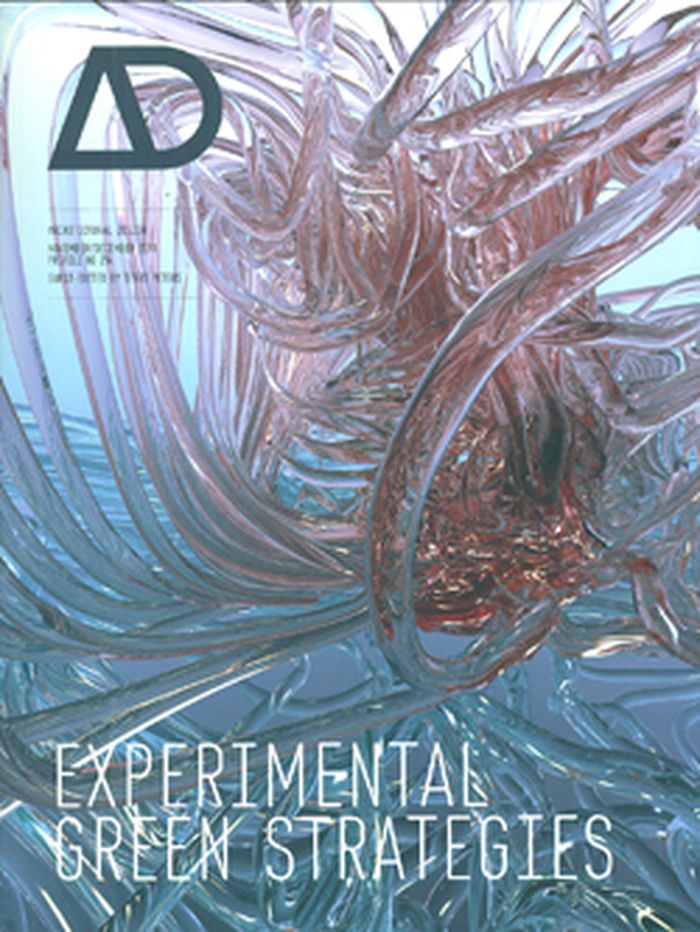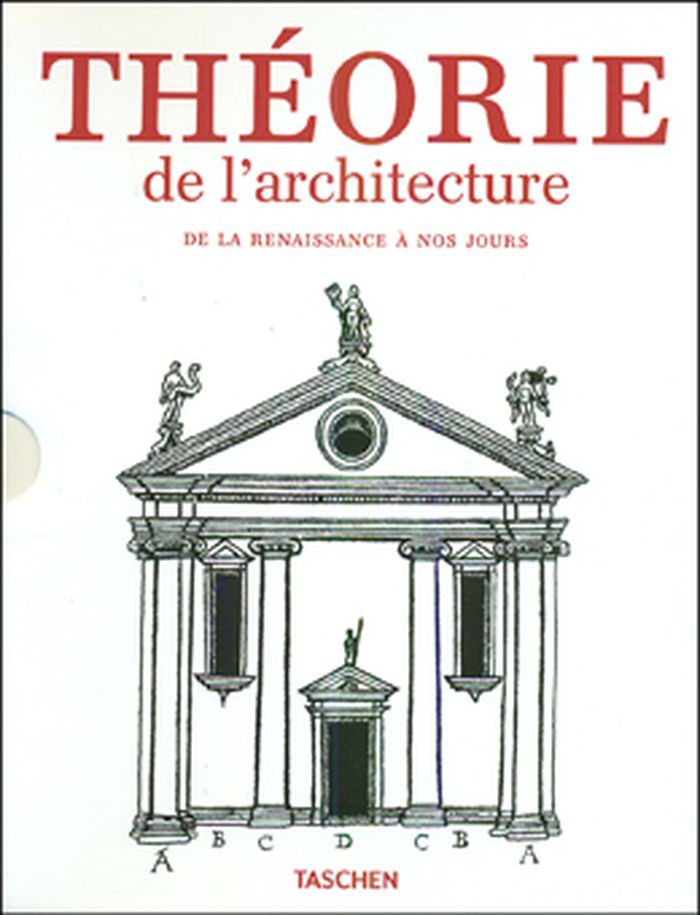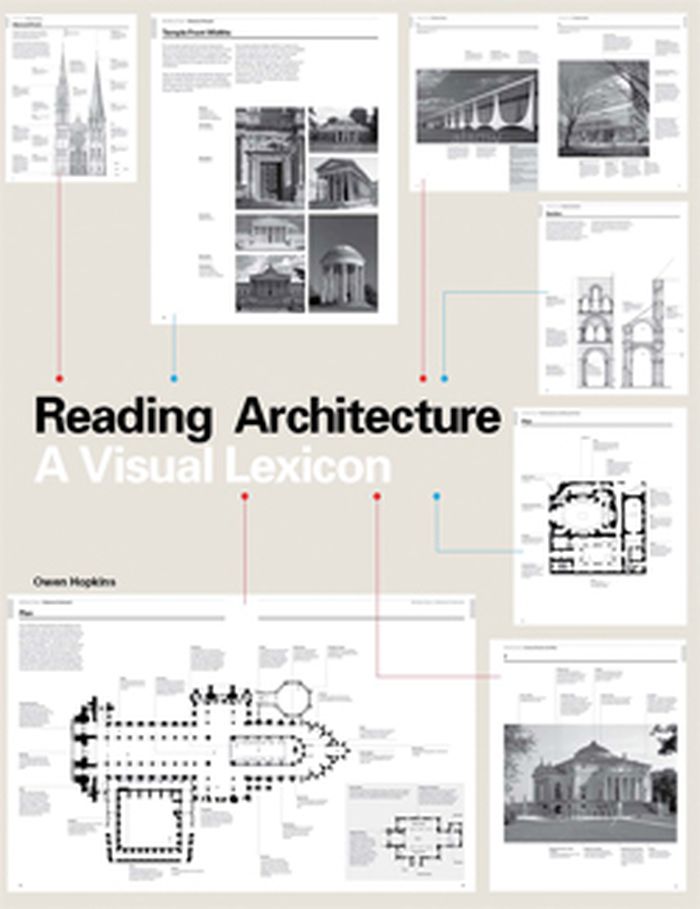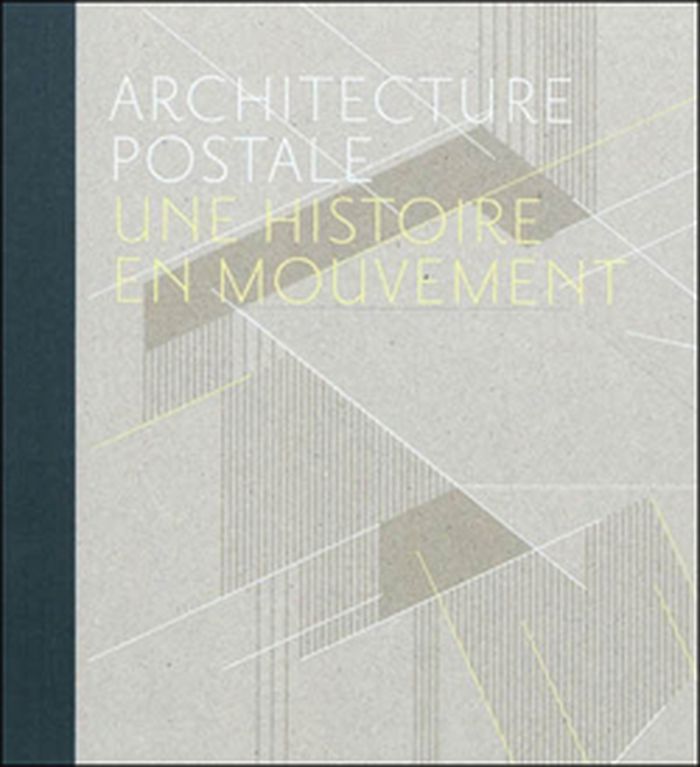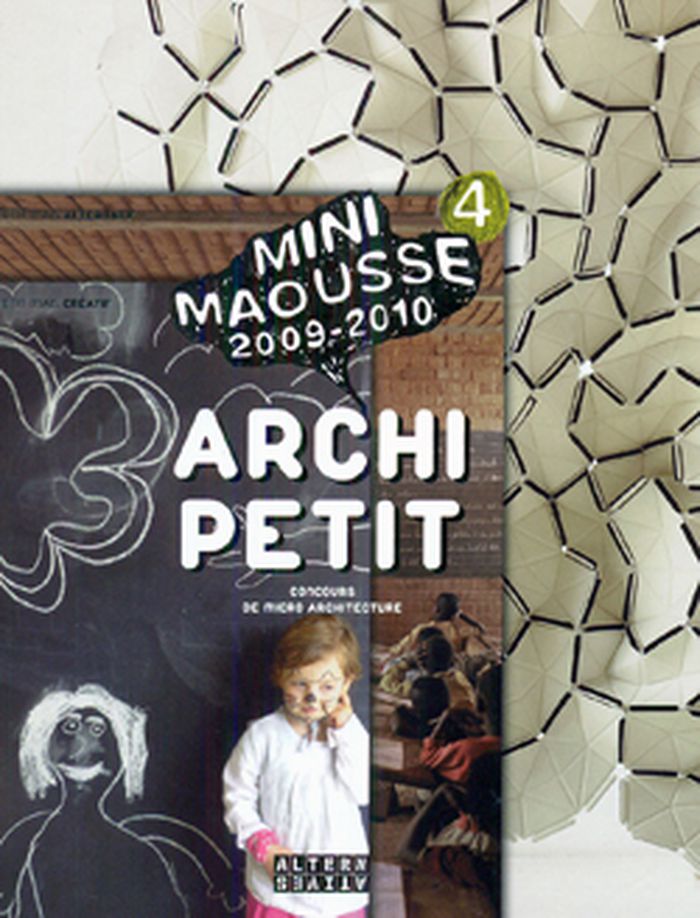$52.95
(disponible sur commande)
Résumé:
The 2011 edition of the biannual publication that accompanies the prize presents the winning project and also the six finalists: the New Museum (Berlin, Germany) by David Chipperfield Archi-tects; the Bronks Theatre (Brussels, Belgium) by MDMA; the MAXXI: Museum of 21st Century Arts (Rome, Italy) by Zaha Hadid Architects; the Danish Radio Concert Hall (Copenhagen,(...)
janvier 2012
Mies Van Der Rohe Award 2011: European Union Prize for Contemporary Architecture
Actions:
Prix:
$52.95
(disponible sur commande)
Résumé:
The 2011 edition of the biannual publication that accompanies the prize presents the winning project and also the six finalists: the New Museum (Berlin, Germany) by David Chipperfield Archi-tects; the Bronks Theatre (Brussels, Belgium) by MDMA; the MAXXI: Museum of 21st Century Arts (Rome, Italy) by Zaha Hadid Architects; the Danish Radio Concert Hall (Copenhagen, Denmark) by Ateliers Jean Nouvel; the Acropolis Museum (Athens, Greece) by Bernard Tschumi Architects; and the Rehab Center Groot Klimmendaal (Arnhem, The Netherlands) by Architectenbureau Koen van Velsen
$29.95
(disponible sur commande)
Résumé:
A condensed version of the "Phaidon Atlas of 21st Century World Architecture," this travel edition edited in 2011 is pocket sized and portable, ideal for the holiday or business traveler. Organized geographically and illustrated with global, sub-regional and city maps, the buildings are easily located. The book contains over 1,000 buildings including 50 new projects, each(...)
The Phaidon atlas of 21st century world architecture, travel edition, 2011
Actions:
Prix:
$29.95
(disponible sur commande)
Résumé:
A condensed version of the "Phaidon Atlas of 21st Century World Architecture," this travel edition edited in 2011 is pocket sized and portable, ideal for the holiday or business traveler. Organized geographically and illustrated with global, sub-regional and city maps, the buildings are easily located. The book contains over 1,000 buildings including 50 new projects, each of which is illustrated with a single image and accompanied by a brief description, with addresses, websites and telephone numbers.
Asnières : quartier de Seine
$41.95
(disponible sur commande)
Résumé:
La ZAC Asnières Bords de Seine est la première opération de restructuration de la partie est de la ville d’Asnières-sur-Seine. À terme, le nouveau quartier, situé au pied de la station de RER « Les Grésillons » de la ligne C, accueillera environ 5 000 personnes. Cette reconversion d’un ancien site industriel de plus de 8 hectares a été confiée en 2005 à Eiffage(...)
août 2011
Asnières : quartier de Seine
Actions:
Prix:
$41.95
(disponible sur commande)
Résumé:
La ZAC Asnières Bords de Seine est la première opération de restructuration de la partie est de la ville d’Asnières-sur-Seine. À terme, le nouveau quartier, situé au pied de la station de RER « Les Grésillons » de la ligne C, accueillera environ 5 000 personnes. Cette reconversion d’un ancien site industriel de plus de 8 hectares a été confiée en 2005 à Eiffage Aménagement par la Ville d’Asnières. L’ouvrage rend compte de cette opération d’envergure au moyen d’un texte retraçant l’histoire du quartier et de son réaménagement, d’interviews avec les personnages clés du projet et d’une iconographie fournie mêlant images d’archives, perspectives, photos aériennes montrant la progression du chantier et reportage sur la vie de ce nouveau quartier, notamment par Luc Boegly.
AD: radical post-modernism
$50.00
(disponible sur commande)
Résumé:
In this issue of Architectural Design the guest editors are drawn, like the content, from contrasting tastes and generations. Charles Jencks, the definer of Post-Modernism for thirty years, discusses some issues that have re-emerged today, while the young group of British architects, FAT, argues for a particular version of RPM. An interview between Rem Koohaas and Charles(...)
octobre 2011
AD: radical post-modernism
Actions:
Prix:
$50.00
(disponible sur commande)
Résumé:
In this issue of Architectural Design the guest editors are drawn, like the content, from contrasting tastes and generations. Charles Jencks, the definer of Post-Modernism for thirty years, discusses some issues that have re-emerged today, while the young group of British architects, FAT, argues for a particular version of RPM. An interview between Rem Koohaas and Charles Jencks discusses the influence of Post-Modernism while investigations of street art, graffiti and the 1980 Venice Biennale show that communication is at the heart of this radical strain of architecture.
AD : Mathematics of space
$50.00
(disponible sur commande)
Résumé:
Mathematics has always been a vital tool in the architect's trade, but the last fifteen years have seen a sharp rise in the power of computers and has led to computational abilities far beyond anything previously available. Modern design software and computing power have changed the traditional role of geometry in architecture and opened up new possibilities enabled by(...)
AD : Mathematics of space
Actions:
Prix:
$50.00
(disponible sur commande)
Résumé:
Mathematics has always been a vital tool in the architect's trade, but the last fifteen years have seen a sharp rise in the power of computers and has led to computational abilities far beyond anything previously available. Modern design software and computing power have changed the traditional role of geometry in architecture and opened up new possibilities enabled by topology, non-Euclidean geometry, and other areas of mathematics. This new title in the Architectural Design series explores fascinating issues in modern design, most importantly the impact of mathematics on contemporary design creativity.
$44.00
(disponible en magasin)
Résumé:
Sustainable design and ecological building are the most significant global challenges for the design profession. To meet new building regulations and national targets for carbon emissions, all future buildings will be judged on their ‘green’ merits. For architects to maintain a competitive edge in a global market, innovation is now key; the design of new processes,(...)
novembre 2011
AD : experimental green strategies
Actions:
Prix:
$44.00
(disponible en magasin)
Résumé:
Sustainable design and ecological building are the most significant global challenges for the design profession. To meet new building regulations and national targets for carbon emissions, all future buildings will be judged on their ‘green’ merits. For architects to maintain a competitive edge in a global market, innovation is now key; the design of new processes, technologies and materials that combat carbon emissions and improve the sustainable performance of buildings are paramount. Contemporary practices have responded by setting up multi- disciplinary internal research and development teams, with offices such as Foster + Partners, HOK and Aedas setting the bar for ground-breaking research and development. The aim of internal groups is often to adapt and create new technologies and materials and to borrow ways of working from other disciplines, to focus on innovation rather than incrementally increasing performance or efficiency. This title offers insights into how a wide range of established and emerging practices are rising to meet these challenges. In pursuit of integrated sustainability and low-energy building, material and formal innovation and new tools and technologies, it illustrates that the future of architecture is evolving in an exchange of ideas across disciplines. Incorporating the creation of new knowledge about ecological building within the profession, it also identifies the emergence of a collective will to seek out new routes that build in harmony with the environment.
$34.95
(disponible sur commande)
Résumé:
Les auteurs s'interrogent sur les origines du traité et expliquent les motifs qui incitent, depuis plus de cinq siècles, les architectes et les maîtres d'oeuvre à prendre la plume. Regroupés selon les pays et les époques qui les ont vu naître, les écrits de Leon Battista Alberti, Andrea Palladio, Marc-Antoine Laugier, Eugène Viollet-le-Duc, John Shute, Johann Bernhard(...)
Théorie de l'architecture : de la Renaissance à nos jours
Actions:
Prix:
$34.95
(disponible sur commande)
Résumé:
Les auteurs s'interrogent sur les origines du traité et expliquent les motifs qui incitent, depuis plus de cinq siècles, les architectes et les maîtres d'oeuvre à prendre la plume. Regroupés selon les pays et les époques qui les ont vu naître, les écrits de Leon Battista Alberti, Andrea Palladio, Marc-Antoine Laugier, Eugène Viollet-le-Duc, John Shute, Johann Bernhard Fischer von Erlach, Karl Friedrich Schinkel, Le Corbusier, Frank Lloyd Wright, Aldo Rossi et Rem Koolhaas, pour n'en citer que quelques-uns, sont abondamment illustrés et commentés.
$42.00
(disponible sur commande)
Résumé:
This innovative and unique book is a visual guide to the buildings that surround us, naming all the visible architectural features so that, unlike other architectural dictionaries, the reader doesn't have to know the name before looking it up.
février 2012
Reading architecture: a visual lexicon
Actions:
Prix:
$42.00
(disponible sur commande)
Résumé:
This innovative and unique book is a visual guide to the buildings that surround us, naming all the visible architectural features so that, unlike other architectural dictionaries, the reader doesn't have to know the name before looking it up.
$46.95
(disponible en magasin)
Résumé:
Des bureaux de poste de campagne aux hôtels des postes monumentaux, des centres de tri urbains aux gigantesques plateformes industrielles contemporaines, La Poste possède un patrimoine architectural remarquable tant par sa variété que pas sa qualité, mis en lumière dans cet ouvrage de référence. L'architecture postale s'inscrit ainsi dans l'histoire durable(...)
septembre 2010
Architecture postale: Une histoire en mouvement
Actions:
Prix:
$46.95
(disponible en magasin)
Résumé:
Des bureaux de poste de campagne aux hôtels des postes monumentaux, des centres de tri urbains aux gigantesques plateformes industrielles contemporaines, La Poste possède un patrimoine architectural remarquable tant par sa variété que pas sa qualité, mis en lumière dans cet ouvrage de référence. L'architecture postale s'inscrit ainsi dans l'histoire durable qu'entretiennent les Français avec La Poste. Depuis les années 1880, adoptant les styles architecturaux qui se sont succédés tout au long du XXe siècle., La Poste a construit un parc immobilier dont la richesse est avant tout celle d'une exceptionnelle diversité au service des métiers qui la constituent. Une histoire qui reflète les mutations techniques, esthétiques, économiques et sociales de la France du XIXe au XXIe siècle. Une histoire émaillée de figures renommées de l'architecture de François-Charles le Cœur à Claude Prouvé, en passant par Léon Azéma, Joseph Bukiet ou encore Louis Arretche. D'autres grands noms s'invitent également ici, Jean-Christophe Ballot, Yann Charbonnier et Stéphane Couturier, trois grands photographes d'art contemporain, nous offrent leur regard sur des bâtiments emblématiques de l'architecture postale.
Archi petit
$52.00
(disponible sur commande)
Résumé:
Et si l'on évitait de penser à partir du standard, d'un homme aux mesures universelles, dictant les proportions de l'architecture, de la ville, selon ses seules mensurations théoriques parfaites ? Si l'on adoptait pour une fois le point de vue des enfants, qui habitent un monde trop grand, qui n'est pas conçu pour eux ? On pourrait alors imaginer une microarchitecture à(...)
octobre 2010
Archi petit
Actions:
Prix:
$52.00
(disponible sur commande)
Résumé:
Et si l'on évitait de penser à partir du standard, d'un homme aux mesures universelles, dictant les proportions de l'architecture, de la ville, selon ses seules mensurations théoriques parfaites ? Si l'on adoptait pour une fois le point de vue des enfants, qui habitent un monde trop grand, qui n'est pas conçu pour eux ? On pourrait alors imaginer une microarchitecture à leur échelle à insérer dans une chambre, un jardin, une cour d'école, un espace libre à conquérir, avec de nouvelles proportions, pour d'outres usages. Tout cela en intégrant les enjeux environnementaux de toute production architecturale aujourd'hui, en utilisant le carton, le papier, le bois, et en laissant bien sûr à l'enfant la possibilité d'intervenir, d'individualiser son espace. Tel est bien le défi lancé par le concours Mini maousse 4, auquel ont répondu, avec ingéniosité et talent, des designers, artistes, architectes français et étrangers. Inscrit dans une problématique critique plus large qui interroge notamment notre rapport à la monumentalité, Archi petit fait la part belle à une architecture différente, une architecture pensée pour s'amuser mais aussi " pour de vrai ", idéale comme une folie, un rien surréaliste, qui donne de l'air aux plus petits, pour les aider à mieux grandir.
